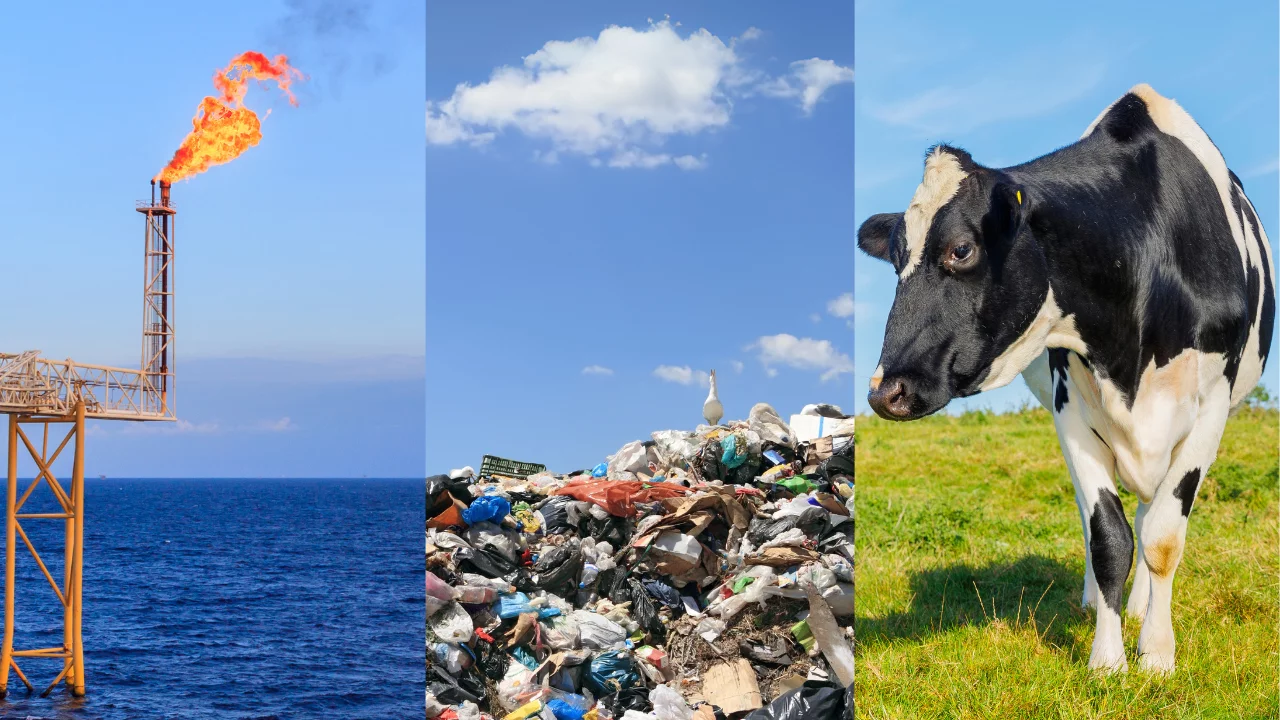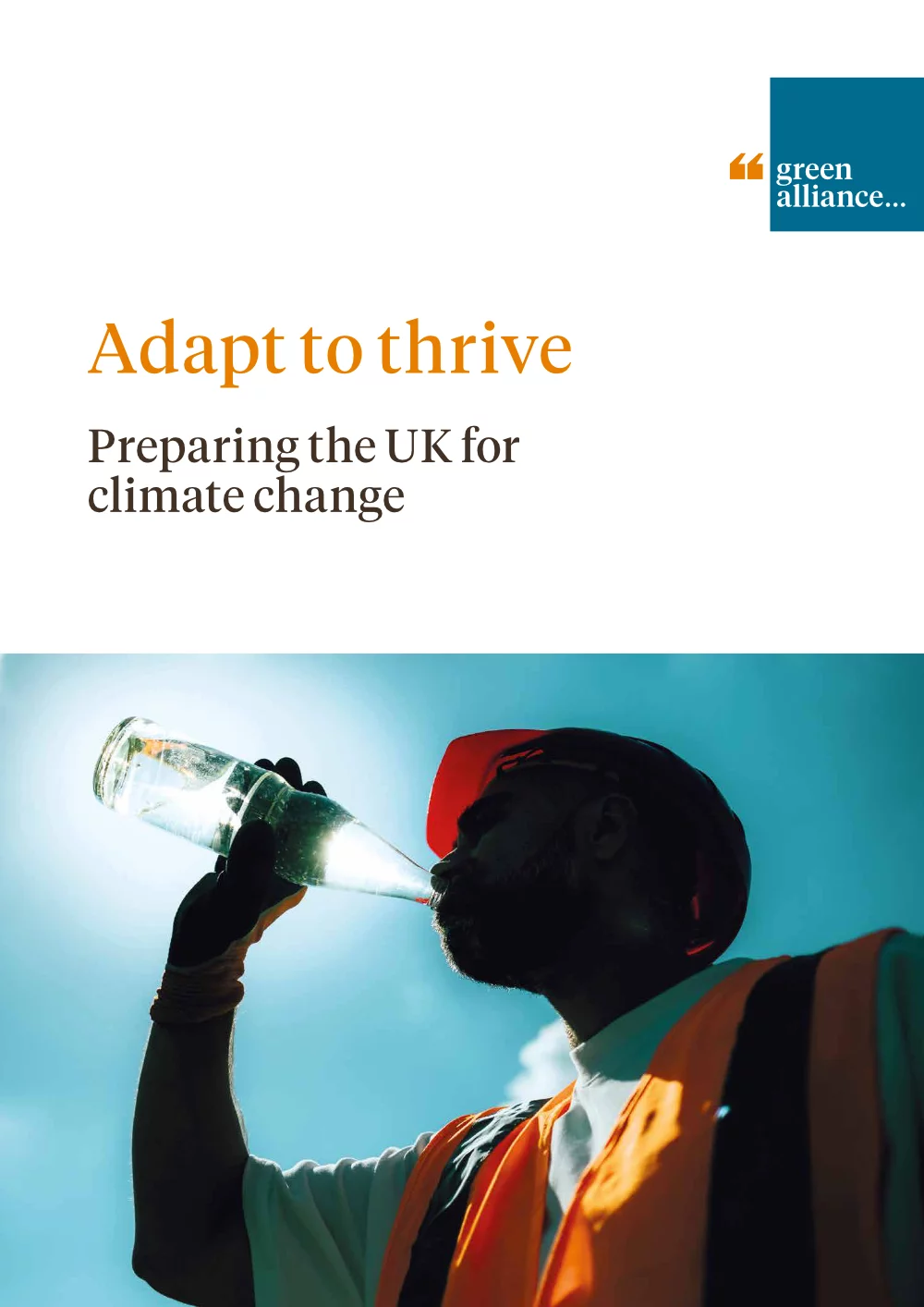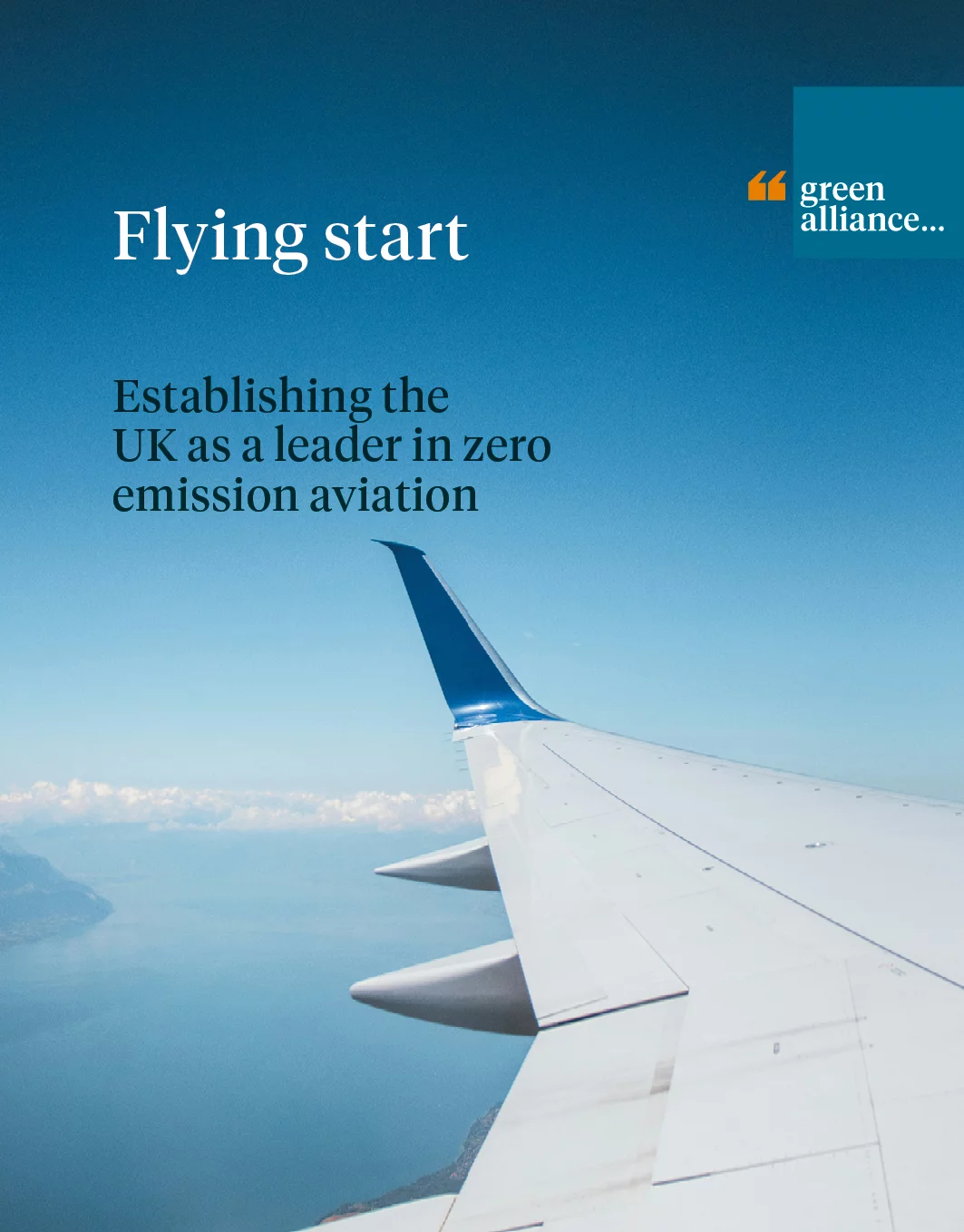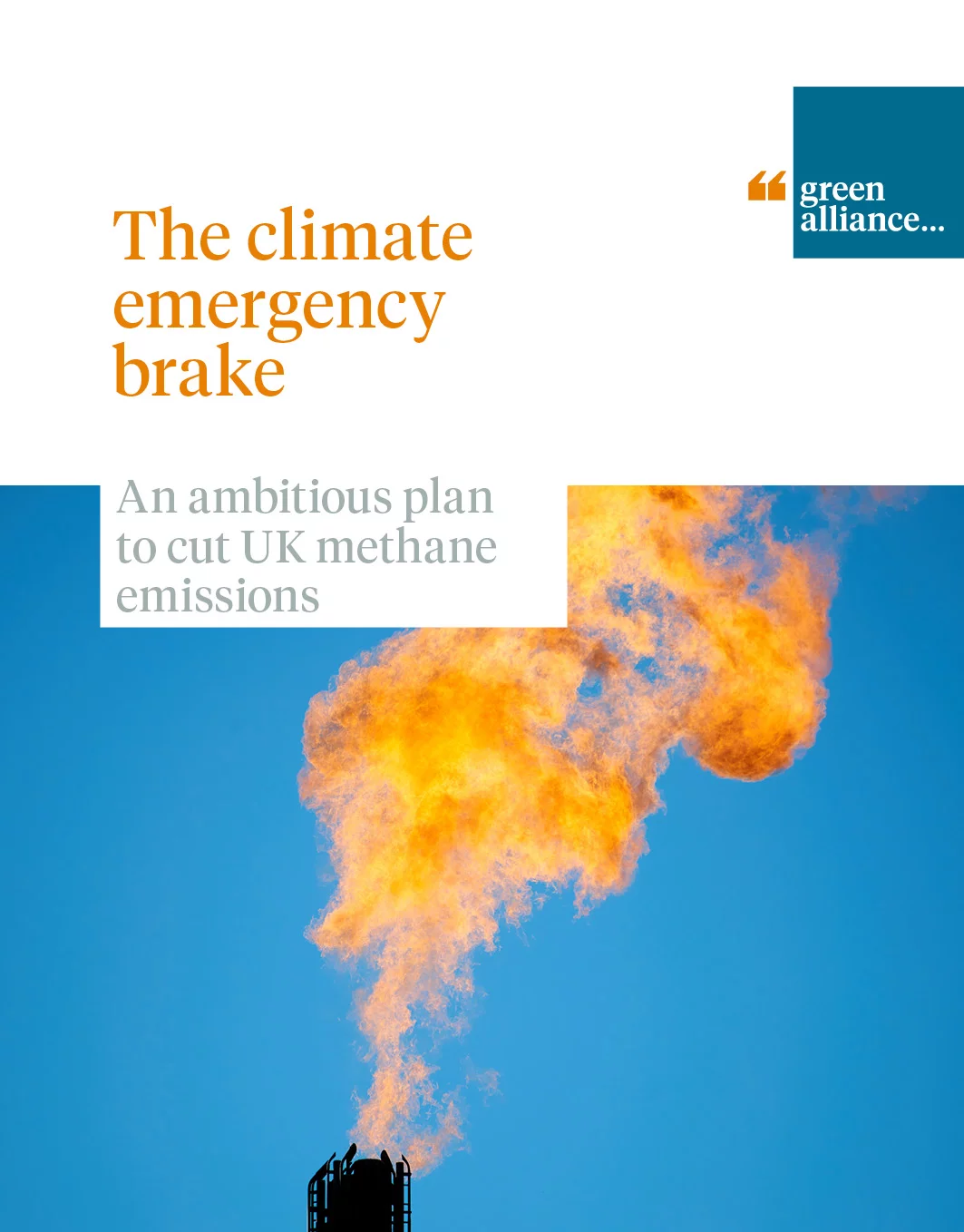Overview
Methane has been overlooked for too long in efforts to address climate change. It is a potent greenhouse gas with more than 80 times the warming power of CO2 in the first 20 years after emission. At least a quarter of global warming is driven by methane emissions, but urgent action to tackle methane emissions could have a cooling effect, and will be critical to limiting global warming to 1.5 degrees.
Cutting overall methane emissions

Today, methane emissions come mainly from three sectors: agriculture, energy and waste.
At COP26 in Glasgow the UK helped launch the Global Methane Pledge, with the goal to cut methane emissions by 30 per cent by 2030.
The UK has so far published no clear plan of action, despite having the potential to be a world leader in methane mitigation. We have shown how the UK can meet the methane reduction target with feasible, low cost actions across the agriculture, waste and energy sectors.
Our work encourages and supports the government to fulfil its commitments on methane and demonstrate global leadership in this area.
Publications
Reducing methane emissions is the fastest way to address global warming, but the UK is off track in its goal to bring them down. In this report, we highlight low-cost interventions across waste, agriculture and energy that could help the UK exceed its pledge target, cutting methane by up to 37% by the end of the decade.
A year has passed since the UK signed the Global Methane Pledge at the COP26 climate conference in Glasgow. However, the UK government has made little headway in showing how it will cut methane emissions to meet its 30 per cent reduction target. In this report, we outline how the UK can reduce methane emissions by 43 per cent this decade with a menu of low cost policies.
The COP28 climate summit will be a chance for the UK to demonstrate leadership and act on methane. An ambitious methane action plan would help to restore the UK’s former climate credibility. In this short report we show what the UK should do and why.
Podcasts and blogs
In this podcast, Rosie Allen, policy adviser at Green Alliance, sits down with Liam Hardy, our senior policy analyst, and Jenniffer Pedraza, a research associate at Stockholm Environment Institute, to discuss the need to raise ambition on methane ahead of the United Nations Climate Change Conference in Baku, Azerbaijan (COP29).
The conversation offers both domestic and international perspectives on the increased leadership required to tackle methane emissions. From the bold steps needed to develop methane roadmaps in Latin America to the key announcements we hope to see from global leaders in Baku, this episode is a must-listen for anyone engaged in climate policy and discussions surrounding COP29.
Tackling methane from oil and gas

Methane emissions from the energy sector fell with the closure of coal mines and improvements to gas networks. However, some oil and gas operators may be significantly under reporting methane leaks, and further reductions in this sector are highly cost effective. Additionally, flaring and venting practices continue without appropriate deterrent measures, wasting a valuable economic resource while adding a highly polluting gas to the atmosphere.
Publications
Oil and gas companies operating in the North Sea wasted enough gas to heat over 700,000 homes in 2023, enough to supply every home in Kent and representing a lost market value of £250 million.
Operators pay tax on the resources they bring to UK shores, but the gas they release straight into the atmosphere is not taxed as it is in other countries like Norway. Since natural gas is mostly methane, a potent greenhouse gas, this is both an economic waste and a significant source of untaxed pollution and climate harm.
In this briefing we outline three ways the UK could tackle this problem.
Although methane is less persistent than CO₂ in the atmosphere over the longer term, it is over 80 times more potent over a 20 year period.
Our analysis of the data from eight North Sea oil platforms has found that operators may be under reporting their methane emissions (particularly from leaks) by a factor of 11 on average and, in some cases, emissions may be up to 70 times higher than the government reports.
The government is refusing to bring forward a ban on routine flaring and venting in the North Sea. As well as being highly polluting and contributing to climate change, this is a scandalous waste of gas. Our analysis of data from the North Sea Transition Authority suggests that requiring companies to clean up their act sooner could bring more gas to market than might be lost by closing down the most polluting sites.
Events
On 21st November 2023 Green Alliance hosted a webinar addressing the methane emissions from the UK’s North Sea activities, how they compare to those in Norway, and whether we can expect COP28 to lead to significant progress on methane mitigation.
Managing methane in agriculture

Methane emissions from agriculture, forestry and land use have only fallen by 12 per cent since 1990. In our research, we propose pathways to support farmers and land owners to reach cuts closer to 25 per cent by 2030.
Publications
In this briefing, we argue that the government should support farmers to use methane suppressants through the existing Sustainable Farming Incentive programme.
Targeting methane emissions from biodegradable waste

The landfall tax has reduced the total volume of waste sent to landfill since 1996, cutting methane emissions significantly, alongside subsidies for renewable electricity generation from landfill gas. Our research highlights the risk that methane emissions from biodegradable waste could increase when those subsidies end.
Publications
The Renewable Obligation Certificate (ROC) scheme is set to end in 2027. Without it, operators may reduce gas capture from landfill sites, leading to a sharp rise in methane emissions and a loss of low carbon power equivalent to the needs of over a million homes.
This briefing outlines the urgent need for government action to extend or replace the ROC scheme, invest in landfill gas innovation and publish a National Methane Action Plan.


